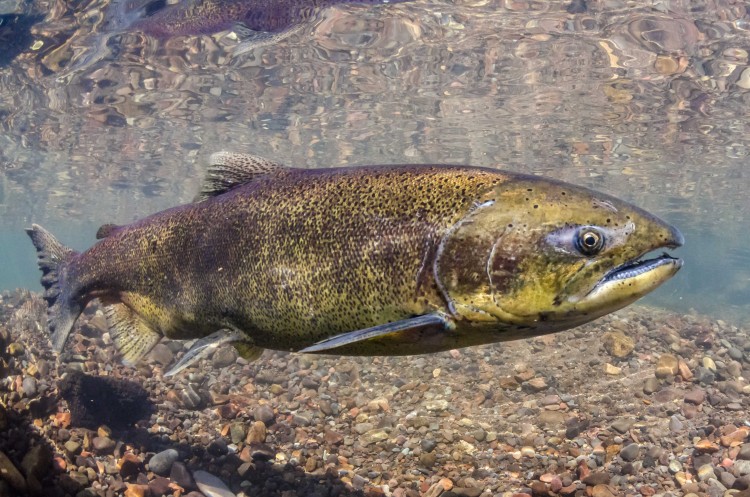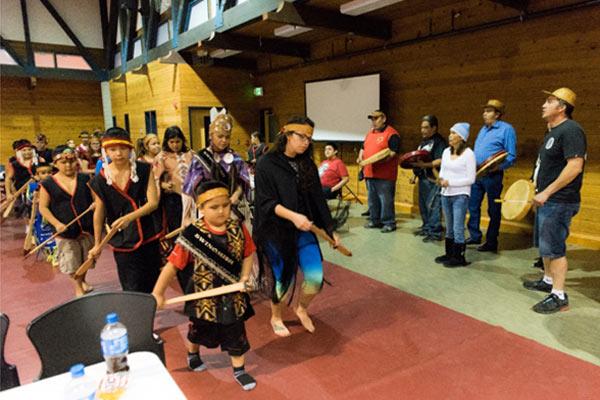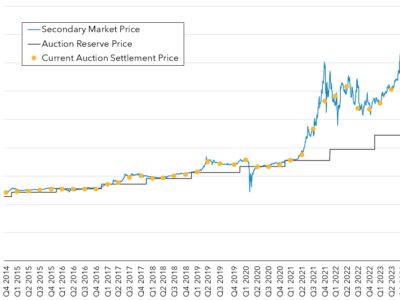Tribal Fishing/Environmental Justice Rights Prevail After Supreme Court Ruling
Justice Kennedy’s Recusal Proves Decisive in Preserving Tribes’ Legal Victory
Perhaps the most consequential environmental case of the rapidly-concluding U.S. Supreme Court Term ended this week with a whimper rather than a bang: in a curt one-sentence order, the Court ruled that the Ninth Circuit Court of Appeals’ earlier decision in Washington v. United States “is affirmed by an equally divided Court.”

The justices split 4-to-4 on how to resolve this important case involving Native American fishing rights, declining salmon populations and environmental justice. Under longstanding Supreme Court practice, that means the Ninth Circuit decision in favor of the tribes and against Washington State is automatically affirmed and constitutes the final disposition of this longstanding legal and political dispute.
As is usually the case, Anthony Kennedy was the dispositive justice in the Washington case–though not in the usual context of casting the deciding vote. This time around, it was Kennedy’s act of recusing himself from the Washington case that deprived the Court of a critically-important fifth and deciding vote.
In a previous Legal Planet post, I recounted the lengthy history, legal issues and respective arguments advanced by the parties in the Washington case. Briefly, the federal government and several Puget Sound-area Native American tribes sued the State of Washington, claiming that state road construction efforts over the years have had the effect of preventing salmon migratory patterns which, in turn, have had a devastating effect on regional salmon populations. That, the federal government and tribes argued, violates the tribes’ treaty-based rights to a sustained salmon fishery upon which they depend for their economic and cultural welfare. The Ninth Circuit agreed, rejecting Washington’s arguments that the plaintiffs’ theory violates principles of state sovereignty and wrongly imposes multi-billion dollar liability on state officials to remediate the environmentally-damaging road projects.
The Supreme Court’s brief order brings to an end 18 years of litigation between the parties, and gives a robust, 21st century application to 18th century treaties between the United States and the tribes–treaties that guarantee tribal members viable fishing rights in perpetuity. And, as noted in my earlier post, the Supreme Court’s ruling preserves a Ninth Circuit decision that is both legally correct and constitutes sound public policy.

(One footnote: the June 12th edition of the New York Times contains a moving article about the Swinomish people, one of the Native American tribes who emerged victorious in the Washington case. The article, entitled “A Victory for a Tribe That’s Lost Its Salmon,” describes in considerable and painful detail how the salmon populations upon which the Swinomish people have relied for centuries are declining precipitously. Only time will tell whether the tribes’ legal victory will translate into meaningful salmon recoveries in northwestern Washington, effective enforcement of the tribes’ 165-year old treaty rights, and a better future for tribal members.)
Reader Comments
One Reply to “Tribal Fishing/Environmental Justice Rights Prevail After Supreme Court Ruling”
Comments are closed.








Through the courts and with this decision the tribe(s) have accomplished what the resource agency biologists have been unable to do for decades – get the transportation and storm water agencies to seriously consider the impacts of what they build on water quality and fish. Fixing past mistakes will be expensive, take time, and a lot of strategic planning but at least the decision will stop the continued construction of stream blocking culverts and other structures.